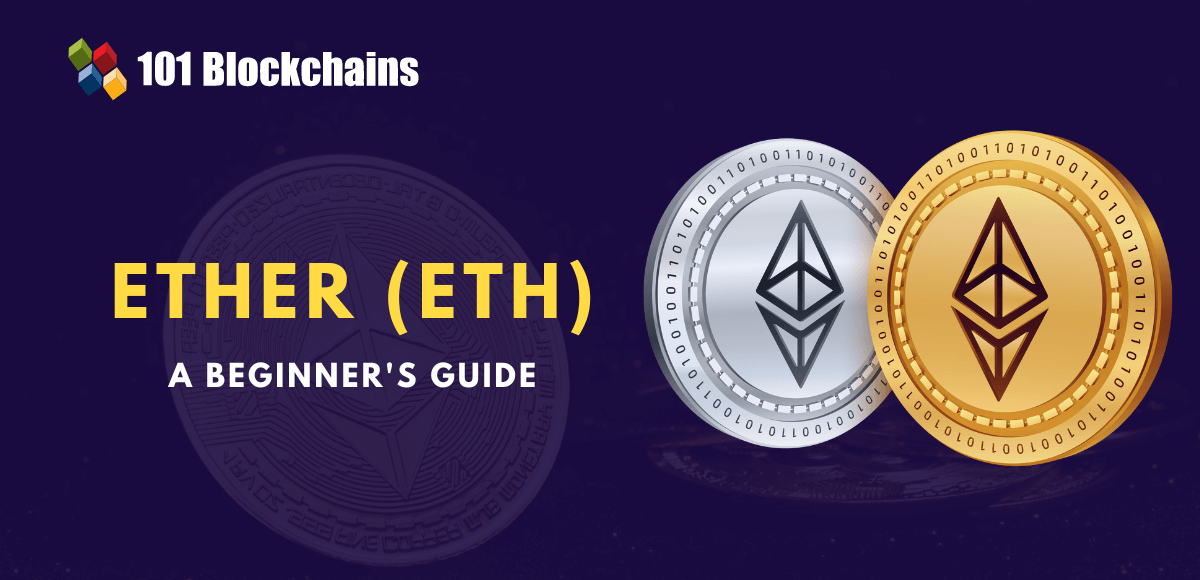CXBOS Insights
Your daily dose of news, insights, and information.
Ether and the Quest for Digital Gold
Discover the journey of Ether as it transforms into digital gold. Uncover secrets, trends, and the future of cryptocurrency!
What is Ether and How Does it Compare to Bitcoin?
Ether, the native cryptocurrency of the Ethereum network, serves as a fuel for executing smart contracts and decentralized applications (dApps). Unlike Bitcoin, which is primarily designed as a digital currency and a store of value, Ether has a broader utility within its ecosystem. Its underlying technology allows developers to create complex applications on the blockchain, making Ether essential for transactions and computational services within the Ethereum platform. Additionally, the ability to tokenize assets and run decentralized finance (DeFi) protocols showcases Ether's versatility beyond mere financial transactions.
When comparing Ether to Bitcoin, it’s important to note key differences in their transaction mechanisms. Bitcoin utilizes a Proof of Work (PoW) consensus algorithm to secure its network, which requires significant computational power. In contrast, Ethereum is transitioning to Proof of Stake (PoS), which is expected to enhance scalability and reduce energy consumption. While Bitcoin's supply is capped at 21 million coins, Ether's supply is more flexible, allowing for adjustments that cater to network demands. This divergence in fundamentals reflects each cryptocurrency's unique role and application in the evolving blockchain landscape.

The Future of Ether: Is it the Next Digital Gold?
The rapid evolution of cryptocurrency has led many investors to speculate about the future potential of Ether, often referred to as the second-largest digital currency after Bitcoin. Unlike Bitcoin, which has been labeled as 'digital gold' due to its scarcity and store-of-value characteristics, Ether offers unique utility through its underlying technology, the Ethereum blockchain. This platform facilitates smart contracts and decentralized applications (dApps), positioning Ether as a formidable contender in the digital asset landscape. As adoption continues to grow, key factors such as network scalability, upgrading to Ethereum 2.0, and the increasing demand for decentralized finance (DeFi) could potentially elevate Ether to a status that rivals or even surpasses traditional perceptions of digital gold.
Furthermore, the argument for Ether as the next digital gold lies in its dynamic and evolving nature. While Bitcoin's primary appeal is its fixed supply cap of 21 million coins, Ether has a different economic model that allows for continuous issuance, which some critics argue could hinder its store-of-value proposition. However, the upcoming Ethereum upgrades aim to implement a deflationary mechanism, potentially leading to a decrease in the total supply over time. As more institutional investors enter the market and utilize Ether for various applications, this digital currency may not just reflect value but also amplify the functionalities that modern economies demand. In this regard, the notion of Ether as the next digital gold could very well be a reality as it reshapes the future of finance and investment.
Understanding Smart Contracts: The Power Behind Ether
Understanding Smart Contracts is crucial for grasping the transformative potential of blockchain technology, especially in the context of Ethereum, the home of Ether. Smart contracts are self-executing contracts with the terms of the agreement directly written into code. They operate on the Ethereum blockchain, utilizing its decentralized network to ensure transparency and security. This automated approach not only reduces the need for intermediaries but also minimizes the risk of fraud, making transactions more efficient and reliable.
One of the most significant advantages of smart contracts is their ability to facilitate conditional transactions. For instance, using a simple if-then statement within the smart contract, individuals can execute payments automatically upon the completion of certain conditions, such as delivery of goods or completion of a service. This functionality empowers developers and businesses to build decentralized applications (dApps) that can innovate various sectors, including finance, supply chain, and healthcare, ultimately harnessing the full power of Ether to drive a new era of programmable economies.